Saoirse Ronan and Kate Winslet on their new movie, ‘Ammonite,’ and doing their sex scenes
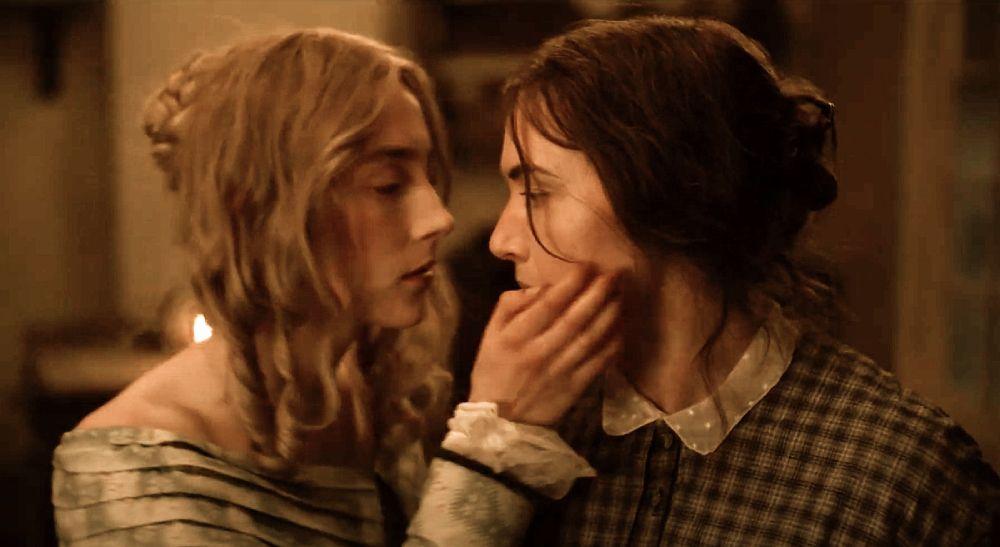
Los Angeles — Only the likes of Kate Winslet can get down and dirty in a role, deliver an amazing performance with minimum dialogue, and still look lovely.
In the romantic drama "Ammonite," the 45-year-old British actress portrays the acclaimed self-taught paleontologist, Mary Anning, who works alone on the wild and brutal Southern English coastline of Lyme Regis.
Not to be outdone is Saoirse Ronan, the 26-year-old charming and talented Irish-American actress who first won our hearts at age 12, when she portrayed aspiring teenager novelist Briony Tallis in “Atonement” (2007).
She is also getting rave reviews for her performance in “Ammonite” where she portrays Charlotte Murchison, the upper-class socialite with whom Anning falls in love.
Written and directed by British filmmaker Francis Lee (“God’s Own Country”), "Ammonite" showcases the talents of both actresses as they portray a lesbian couple in the 19th century. And Kate and Saoirse even choreographed their own love scenes.
We were able to talk to Kate, Saoirse and Francis and below are excerpts of our conversations with them:
Saoirse Ronan
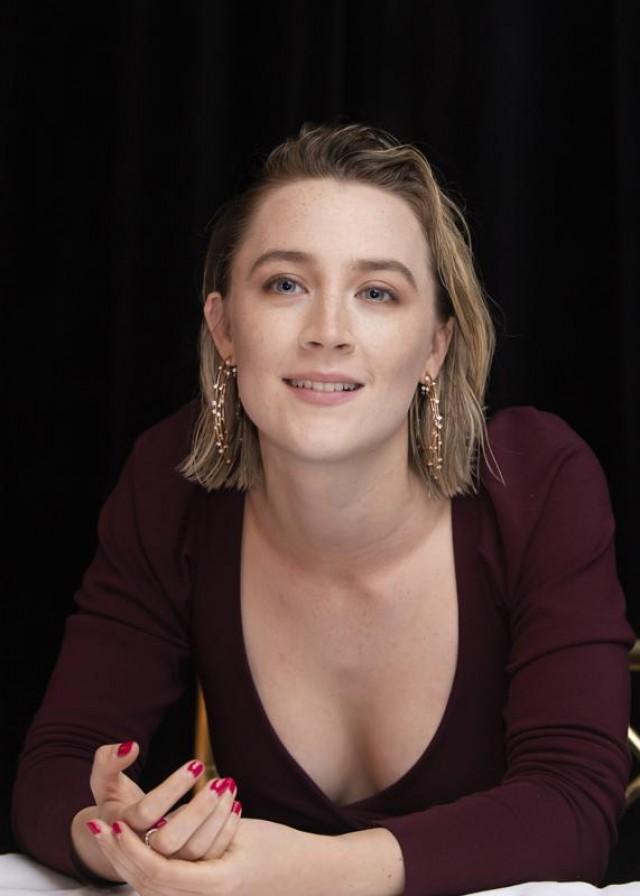
One could look at "Ammonite" and focus on the sexuality of it but this isn't just a sexual awakening. It's also a personal awakening. Can you talk more about that?
The most interesting thing for me about this film and their relationship is how their bond as people really brings them out of themselves, their relationship to the work, how that allows them to really flourish as individuals and find their voice and find their role within the relationship as well.
What really attracted me to playing Charlotte is that she has found that her greatest ability is to take another person who’s really brilliant and great at something and put them on a pedestal and support them and really shine a spotlight on them. She’s incredibly egoless in that way, which I loved.
When did you find your voice?
That’s an ongoing thing. You settle into yourself more and more as you get older and try on different outfits, different costumes and different personalities in a way as you grow up.
But in terms of work, over the last few years especially, probably since films like “Mary Queen of Scots” where I was involved for a very long time leading up to the shoot, I felt like I had an authority that I wouldn’t have necessarily had otherwise or hadn’t experienced beforehand.
So that’s something that stayed with me and I’ve been very lucky since then to be involved in other projects in the same way and I do think it gives you ownership and more of a sense of a true collaboration with the director, writers and producers and that you’re really involved in the development of a project. That alone can make you feel more competent in brining your ideas forward.
Talk about doing the intimate scenes you had with Kate.
We didn’t have an intimacy coach. I’m sure we could have had one if we had asked for one but there was like six people in the room and Kate and I planned the whole thing out ourselves so that was really helpful.
In any film, whether it’s a heterosexual relationship or a gay relationship, I’ve always felt with any sex scene, it’s interesting to watch and because it’s an interesting thing to see two people wordlessly connect, that can give you a real insight into the characters.
But for me, the thing that gives me a better scope of who these women are and what their relationship is like is when you see them working together.
One of the things that I find interesting about what came out of those more intimate scenes was that weirdly, and I felt this when we were doing it and I could see it in the scenes in the final cut, I felt like the roles reversed a little bit.
So Charlotte went from being this very vulnerable, reserved, restricted woman who didn’t say very much and really felt like she was in chains, socially, emotionally, sexually to really becoming the instigator in a way in these scenes.
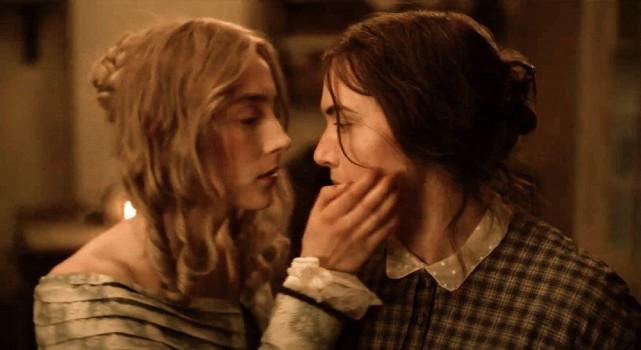
You see Mary, she’s gone from being a bit more domineering and very much the boss in the relationship to showing her vulnerability and in a way her innocence that you don’t see the rest of the time.
So, the intimate scenes serve a purpose in that sense that you get to see the more domineering side come out in Charlotte and the more vulnerable side come out in Mary and that they feel safe to do that with one another.
What did you love in that era?
One of the really interesting things about that time period and one of the reasons why Francis (Lee) was interested in portraying a romantic relationship between two women in that time period is that there wasn’t a name for it then.
Women at that point weren’t even seen to be sexual creatures or creatures who could enjoy or indulge in something physically. It wasn’t in anyone’s psyche that two people could have an intimate relationship like that.
Out of that comes something very pure and incredibly natural and, in a way, you could see it as a very forward-thinking type relationship, a very modern relationship because there are no labels put on it and there’s no expectations put on either of these women from the other one.
They just enjoy being with one another and enjoy working with one another and talking to one another. There aren’t these social pressures that have put into place yet that means that they expect too much of one another really. So, I think in that way weirdly, it’s actually quite modern a relationship.
There is so much chemistry between you and Kate. What did you know of her before you worked with her? And have you become close friends?
Yes, we did become friends. We have actually sort of had this very long introduction to one another over the course of a few years because we would meet at different events, parties and we actually interviewed each other a few years ago and did a photo shoot together. So, we’ve actually spent quite a bit of time together.
So when it came around to us actually making a film, we knew at least that we would get along, which we really do. We just hit it off instantly. I make fun of her all the time and she lets me and she makes sure that I’m taking on the little ones. We have a really great relationship.
One of the things I really love about Kate is that she’s very supportive of younger actors on their way up as well, and really wants to support them. I really felt that from her even before we had worked together. She’s great.
What is love to you?
You need to get to know a thing or a person or an animal or whatever it is that you start to care for, in some way. I definitely think that love is something that evolves over time. And so yes, I do believe in love. But I think it's more complex than just fairytale love. Which makes it better when you have it.
What have you learned from the pandemic?
One of the positive things that I’m seeing from communities throughout the UK and in Ireland as well is sort of definitely coming together and finding a way to really entertain ourselves while all this is going on and to stay active and alert and to still try and be social in whatever way we can.
There are incredible people at small communities who are really making an effort while still physically distanced, to bring people together. It’s a hard time and so I think everyone’s trying to do the best that they can.
Kate Winslet
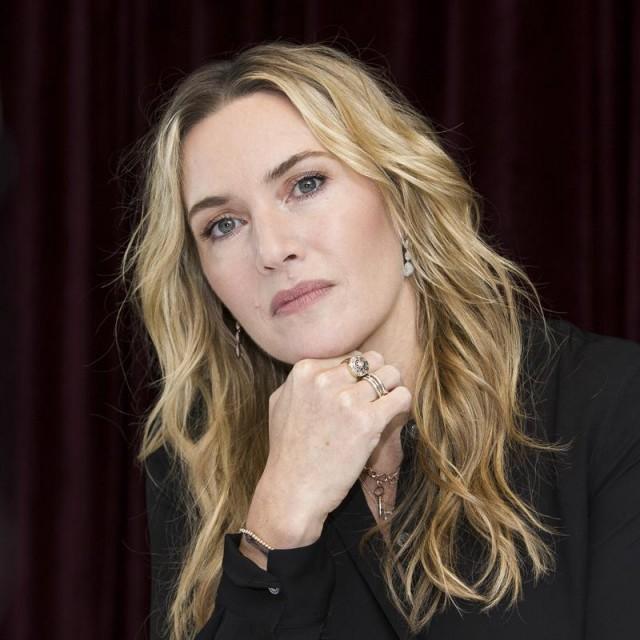
Where are you right now?
I’m in Pennsylvania. I’m working. I am filming, so I am having to be so COVID careful. And so, we had to stay home quietly like everyone else watching it on the news. It has actually just been very exciting just to be in the American time zone during this historical moment (the elections). It has been very thrilling, very moving.
What was it like for you to film the lovemaking scenes?
The most important thing to Saoirse and I and Francis Lee was that the physical intimacy underpinned the longing and the love that these two women feel for one another in a very truthful way that supported the narrative.
So, we discussed the structure of each intimate moment when we were in rehearsals and that was very helpful, just because often, as with any scene of an intimate nature, it’s very important for each individual to understand exactly what’s going on, just because you have to choreograph things, a little bit like a dance apart from anything else for continuity reasons. You can’t just improvise each take. It’s the same as any other scene in a sense that you really do need that structure. You need that structure more so than in a love scene, because you don’t want to have to think about those details. You want to be able to stay connected to the individual.
For Saoirse and I, I think not having words was a real reflection of Mary and Charlotte’s relationship. The verbal communication between those two women is so sparse anyway throughout the story and in particular for Mary because she was quite an introverted, shy woman who was lonely and lived a very isolated life that was separate to society that was very accepting of the patriarchal environment in which she was having to function. This was a world that was filled with a level of repression that was systemic of the time.
Removing words from the intimate scenes really allowed us to explore the longing and the desire and the depth of the connection between these two women and to explore the femininity that comes with a same sex scene of that nature.
It was really a privilege to take part in something like that and for me, removing heterosexual stereotypes was really kind of — I learned a lot. It felt very different because Saoirse and I were two women, and women know what women want right? So that made a really big difference to us. It felt very equal. It felt very safe and we didn’t feel objectified in any way. It made me realize that perhaps I have felt maybe a little objectified in the past and without really knowing it. It brought up a lot of really interesting stuff for me.
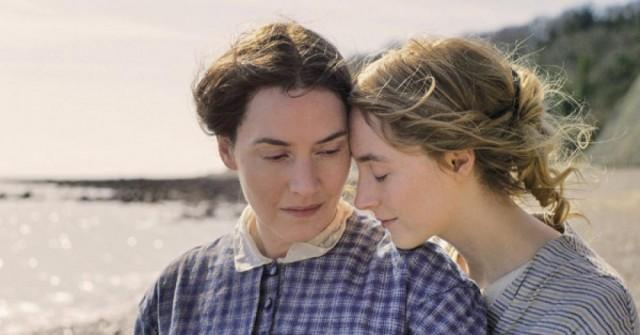
In which way has your idea of love changed over the course of your lifetime experience?
We have to love ourselves first before we can truly love somebody else.
And for me, becoming truly comfortable with who I am and how I feel and how I look and the person that I have become and continue to evolve and change. I'm at peace with me.
Definitely in this last decade of my life more than I think I ever was in my 20's for certain and that's made a huge difference. I think it changes throughout one's 20's and 30's, the feeling of love.
I do absolutely believe in unconditional love but I also believe in knowing one's own mind and being one's own person, keeping a sense of your own true self within a connected relationship or marriage or commitment that one person may have with another person.
I do believe in maintaining your own voice and that's part of loving someone, also accepting their voice, accepting their opinions and their feelings and their ways might be different to yours sometimes. Their opinions might be different to yours and that's what makes life and relationships so interesting and that sense of acceptance of one another and not judging, providing support and showing love through the support and belief in the person that you're with. So, it's not just about love, it's about understanding, support and passion and all of those things as well. — LA, GMA News




